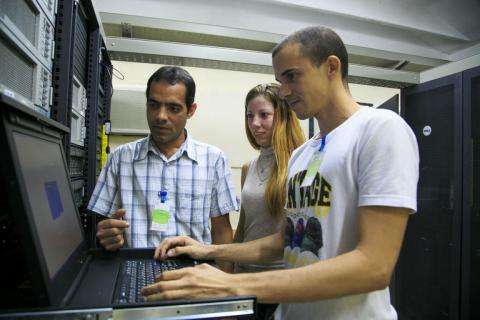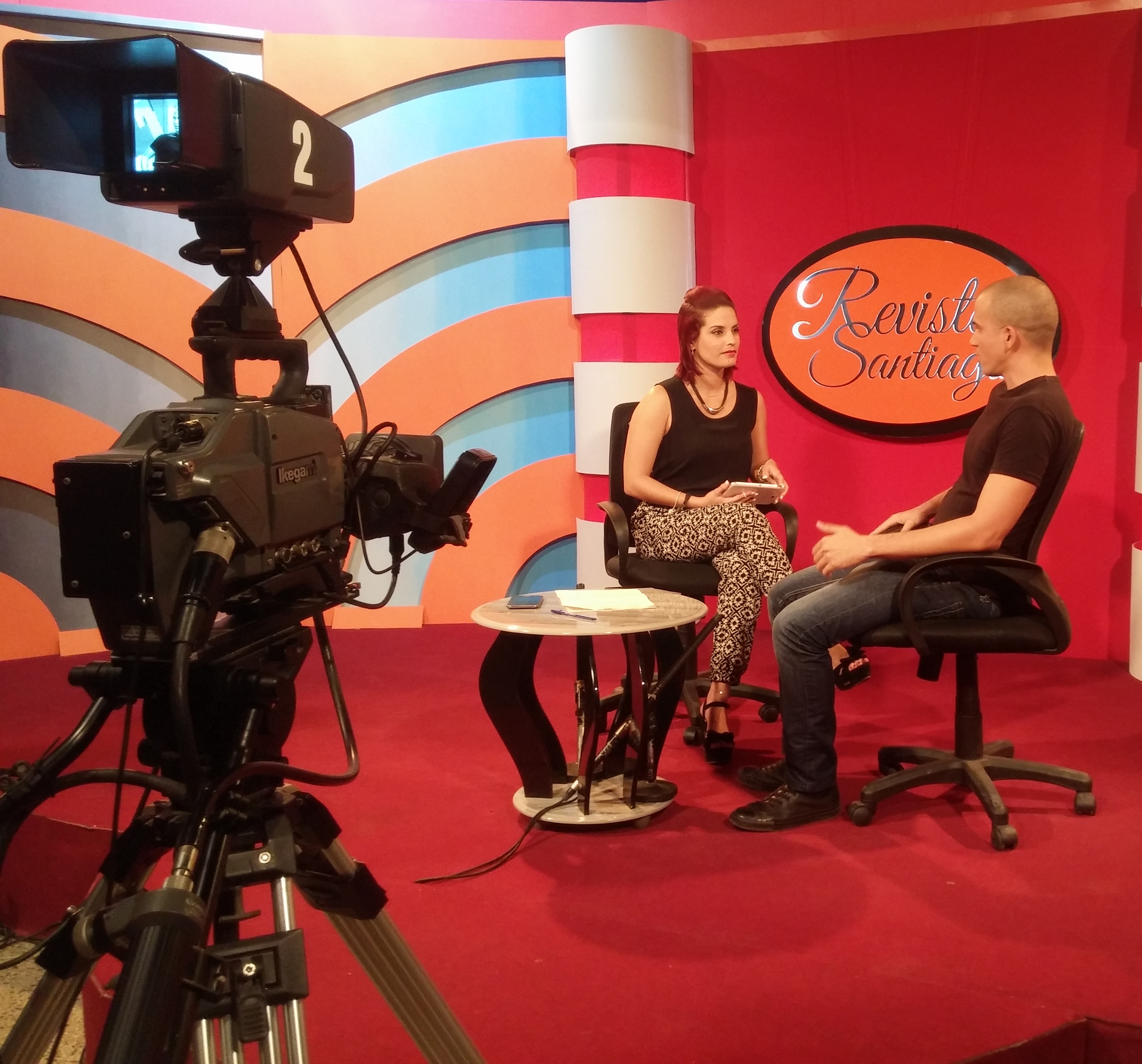
A week was the deadline I set for him to accept. And just when we was about to say no, he changed his mind. That was certainly good luck! Thus, we knew how much the process of computerization in the Universidad de Oriente, has advanced.
On our way to the local channel our conversation started, continued in the dressing room, in the Revista Santiago Tv show and finally on our way home. That was how this interview came to life. This workj we share today is important to let the world know that ”the UO will not be the same without the VLIR programme".
- What is the responsibility of a network specialist?
"A network specialist in the Computerization Division of the Universidad de Oriente embraces a considerable number of responsibilities, bearing in mind that DINF is responsible for providing services to the entire university community, such as: Internet access. Email services. Instant messaging. Virtual classrooms and educational platforms, as well as access to the MES University Network (REDUNIV) to guarantee exchange and visibility with all Cuban universities. Cloud services for storage. Maintenance of institutional repositories. Videoconferencing services. In a broader sense, we can state that it is in charge of the administration, control and management of the UO network.
All these services and others increase the reach of the responsibility since the incidence in the university processes is increasing, if we consider that the development and implementation of solutions related to Information and Communication Technologies ( ICT ) in order to raise the quality, efficiency and effectiveness of the management of university processes is among our objectives. The integral formation of students, the academic training and the scientific production of the university are subject to improvement; as well as lead the development of projects so as to optimize the communications infrastructure of the University having a bearing outside the university environment, towards the OACE and other universities of eastern Cuba.
In my experience as a journalist, I have come to learn that sometimes the best interview is the one you do with the recorder turned off. This was no exception.
- I sense there is a great difference before and after the computerization in the OU, taking into account the support of the Vlir porgramme.
"The Universidad de Oriente would not be the same without the VLIR programme. This is reflected in all computerization processes. Previously, the services we offered were very basic, considering that the equipment was not specific to these tasks. For example, we used to use personal computers serving the purpose of servers. This situation prompted instability in services, difficulties in the systems maintenance and updating. In addition, most of the services for each faculty were provided from a small server in the faculty itself, which increased the problems.
With the VLIR programme, progress has been enormous. In these 5 years, we have received several donations and the impact on the university community is massive. We have assembled several computer labs in all faculties and study centers. The servers received, that have allowed to update services and create new ones, have been of paramount importance.
It is worth mentioning that, nowadays, the centralization of services, greater stability and a considerable increase in the security of the network in general have been achieved".
"The man who did not want be interviewed turned out to be an excellent communicator. In his attempt to make these arguments clear, he insists on setting examples.
"Previously every professor’s mailbox was had no more than 40MB in their inbox. 1GB of storage are available for professors, while students have 200MB.
Internet access has also been widened. This allows a greater presence of the OU at an international level. Currently, all students, in any form of study, have internet access along with professors and workers linked to teaching and research.
Assembling a High Performance Computer (HPC) is available to all researchers and students at our university. Projects that previously needed more than 30 days be completed with the best current personal computers are now easily carried out in this HPC in less than 1 day.
It is worth mentioning that the exchange with Belgians specialists has been very important for the technological assimilation. We have shared the way we work and the philosophy when it comes to deploying services, always with the levels of quality and safety necessary throughout the world.
-Undoubtedly, one of the leading impacts has been the WiFi, what can you comment on the matter?
The WiFi is currently expanding throughout all areas of the UO, thanks to important donations for the VLIR programme. Migration in network technology also enables this. Currently, we have more than 30 functional access points distributed. Soon, this amount will grow exponentially. "
-This young man not only works, he is also majoring in Telecommunications Engineering at the Universidad de Oriente.
"The UO is a school in every sense. It has made me grow as a person, a worker, a friend. The demands of working in a university like ours is significant, therefore it is important to grow more every day and give the best of us. Working at the UO is a great opportunity to broaden my professional life. Now I am achieving a goal: becoming an Engineer in Telecommunications and Electronics. The university provides us with useful tools for any area of life. "

This Tuesday, the specialist Eduardo Allende explained to viewers how much technological services have advanced in the Universidad de Oriente thanks to the Vlir-UOS programme.

